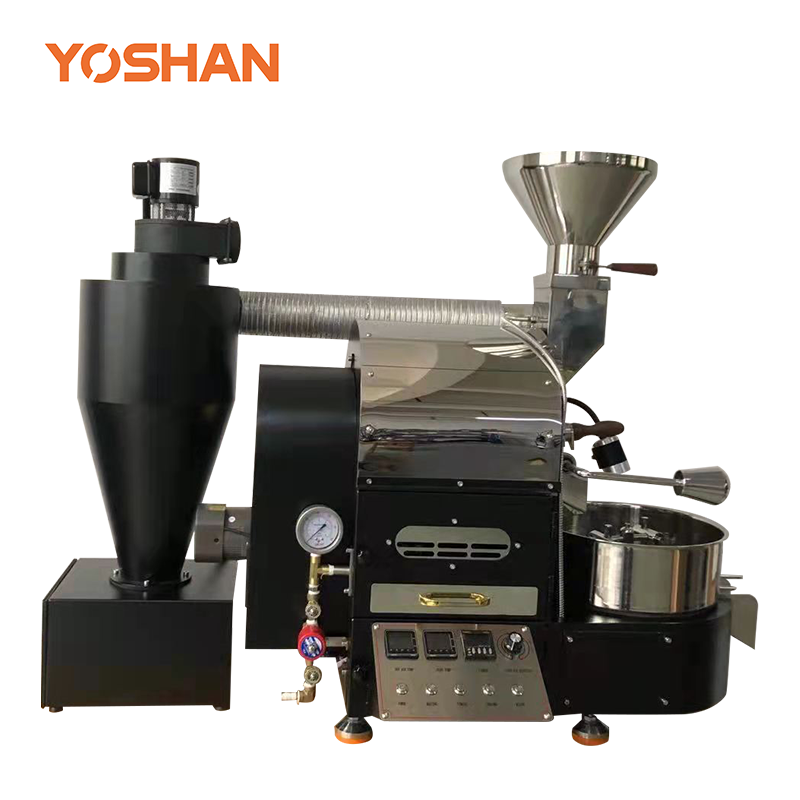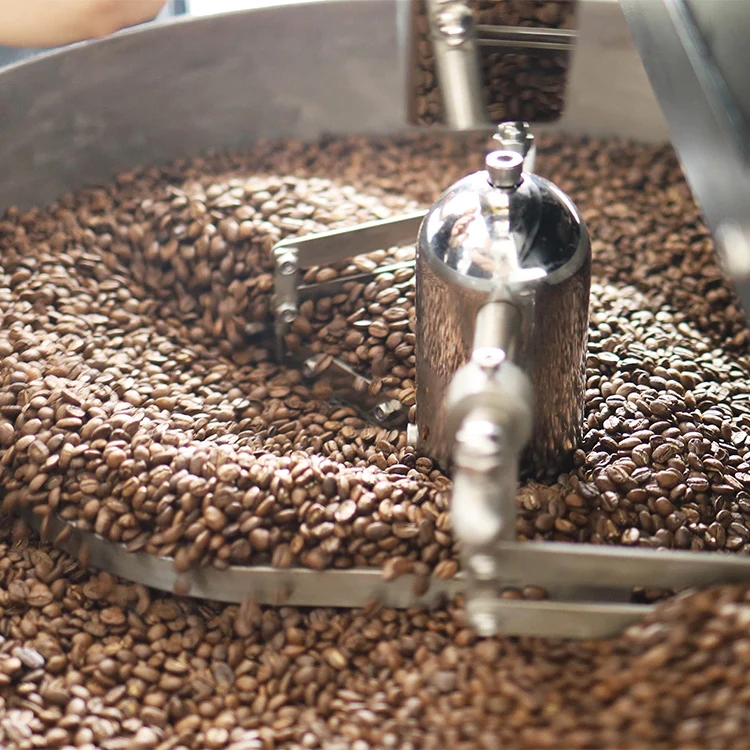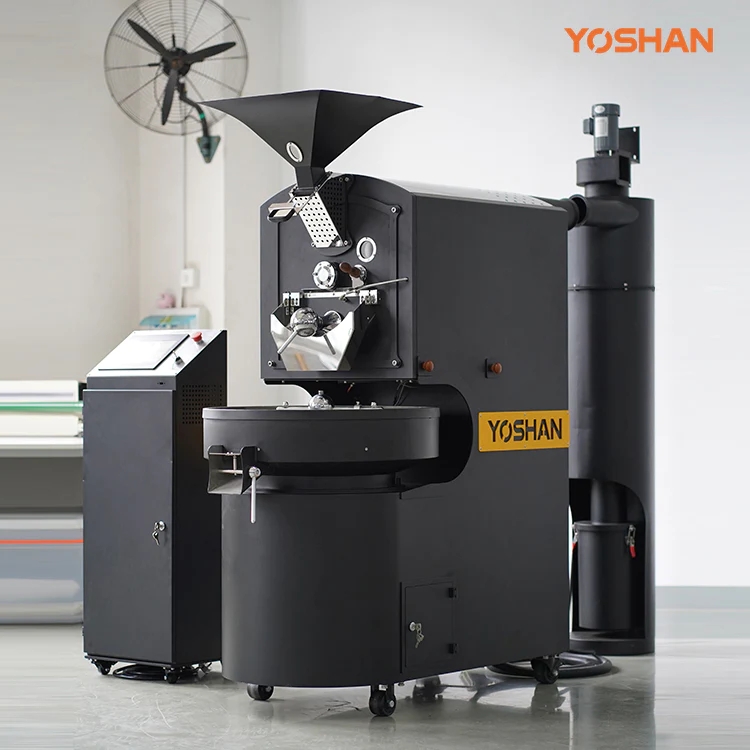Coffee roasting is an intricate process that involves transforming green coffee beans into the aromatic and flavorful beans we cherish in our cups. Central to this process are coffee roasters machine, machines designed to apply controlled heat to coffee beans, unlocking their potential and infusing them with unique flavors and aromas. In this extensive exploration, we'll delve deep into the diverse landscape of coffee roasters, examining the various types available, their mechanisms, and how they shape the final cup of coffee.
1. Drum Roasters:
- Drum roasters, also known as barrel roasters, are among the oldest and most traditional types of coffee roasters.
- They feature a cylindrical drum that rotates to agitate the coffee beans while they are heated.
- Drum roasters offer even heat distribution, resulting in consistent roasts and balanced flavor profiles.
- Highly versatile, drum roasters are capable of producing light, medium, and dark roasts with precision.

2. Fluid Bed Roasters:
- Fluid bed roasters, also called air roasters, utilize hot air to roast coffee beans.
- Coffee beans are suspended in a chamber, and hot air circulates around them, ensuring uniform roasting.
- Fluid bed roasters roast beans more quickly than drum roasters and are known for producing bright, vibrant coffees with distinct acidity.
- Popular among home roasters due to their compact size and ease of use.
3. Direct Flame Roasters:
- Direct flame roasters, also known as open flame roasters, expose coffee beans directly to a flame for roasting.
- These roasters provide intense heat, resulting in shorter roasting times and bold, full-bodied flavors.
- Often used in commercial settings for their efficiency and ability to handle large volumes of coffee beans.
4. Hybrid Roasters:
- Hybrid roasters combine features of drum and fluid bed roasters to offer the benefits of both.
- They typically feature a drum for heating and a fluid bed for agitation and airflow control.
- Hybrid roasters provide versatility, allowing roasters to experiment with different roast profiles and achieve a wide range of flavor profiles.
- Popular among specialty coffee roasters seeking to innovate and differentiate their offerings.

5. Commercial Roasters:
- Commercial roasters are designed for high-volume coffee production and are used by large-scale roasteries and coffee manufacturers.
- Come in various configurations, including drum, fluid bed, and hybrid designs, tailored to meet the specific needs of commercial operations.
- Offer advanced features such as automated controls, temperature monitoring systems, and batch profiling capabilities to ensure consistency and quality in large-scale production.

Coffee roasters are pivotal in the journey from green coffee beans to the perfect cup of coffee. Each type of roaster brings its own set of advantages and considerations, allowing roasters to craft unique flavor profiles and cater to diverse preferences. Whether it's the traditional approach of drum roasters, the rapid roasting capabilities of fluid bed roasters, or the intense heat of direct flame roasters, there's a coffee roaster to suit every roaster's needs and aspirations. Understanding the characteristics and capabilities of different types of coffee roasters empowers roasters to unlock the full potential of their beans and create exceptional coffee experiences.